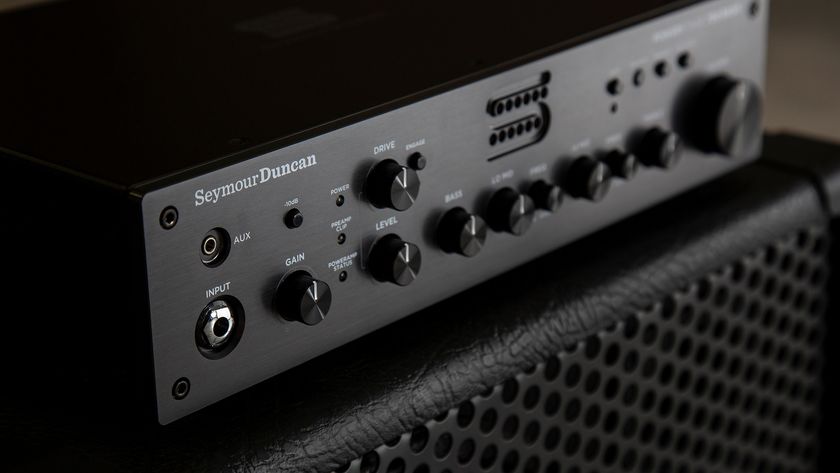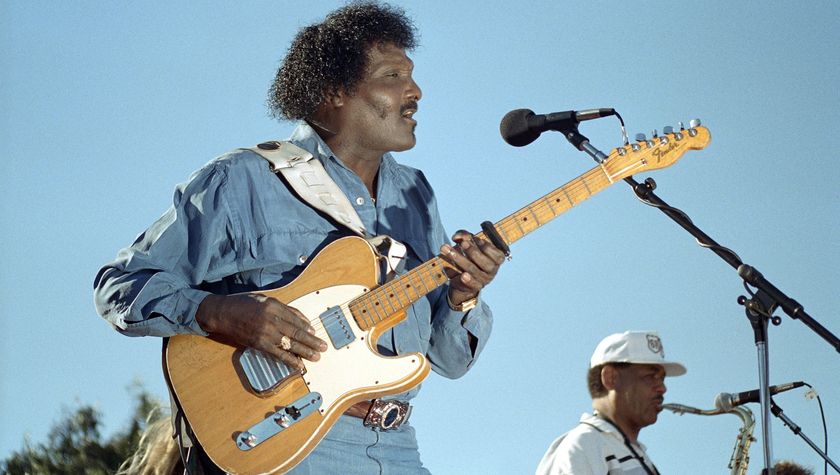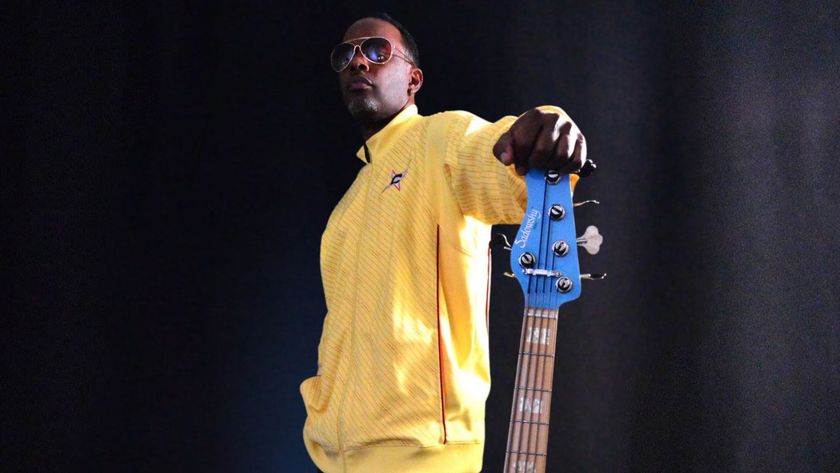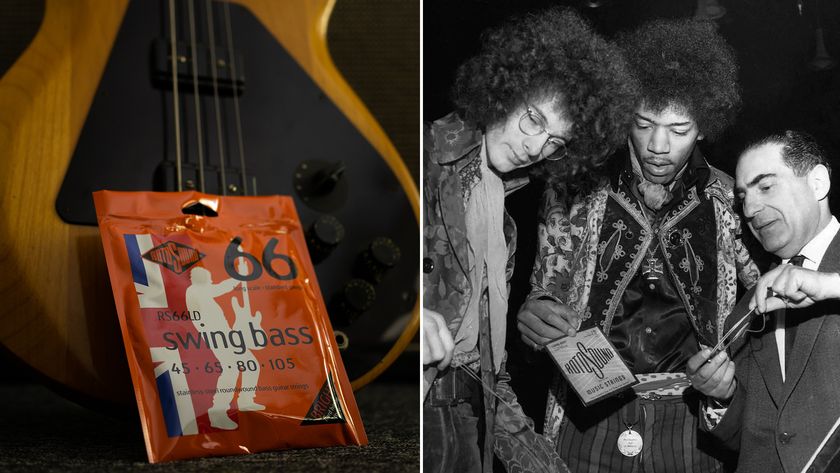Yours Truly: “This is the best material I’ve ever played, and I couldn’t be more happy with it”
Sydney's pop-punk powerhouse deliver a debut album worthy of being considered a career-defining magnum opus
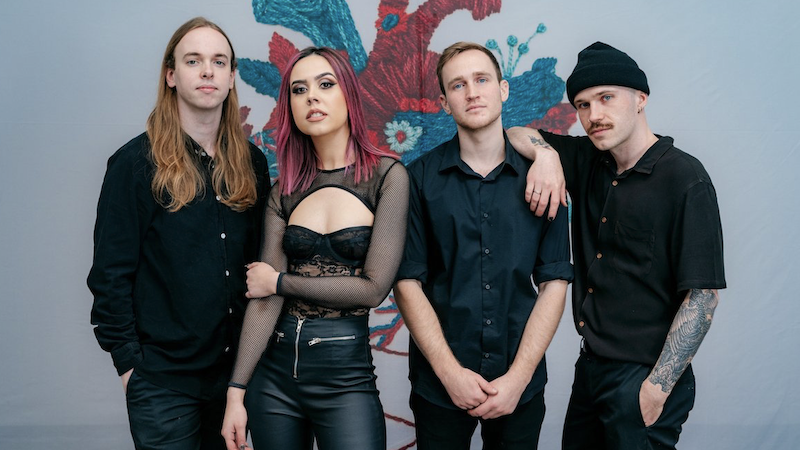
Even if you’ve never heard a note of their music, you have to be impressed with the Sydney pop-punks in Yours Truly. In the short four years since their inception, the foursome have not only dropped two cataclysmically captivating EPs and a full-length worthy of the critical acclaim it’s been doled, but they’ve toured the world twice over with bands our generation were raised idolising, won the approval of industry icons everywhere from Brisbane to Berlin, and brewed up a fanbase more devoted than Catholics on Christmas. The UNFD-signed trailblazers are truly making waves for themselves as one of the most interesting pop-punk bands on the prowl, and they’re soaking in every second they spend in the spotlight.
According to guitarist Teddie Winder-Haron, the band headed into the studio to record their debut album, Self Care, with one key goal: one-up everything it is they’d done to bring themselves to the stature they earned at that moment. The end result is one of the most jaw-dropping pop-punk records in recent memory, with melodies so hooky they straight-up glue themselves to your eardrums, and riffs so scorching hot you’ll find yourself air-guitaring along on your very first listen.
With the LP finally out in the digital abyss for all our streaming pleasure, we caught up with Winder-Haron to discuss how Yours Truly set out to create Self Care as a career-defining magnum opus so early in their career.
What is it that you hope listeners will get out of this album when they pop it on for the first time?
I think the biggest thing is that we want to show people who we are, what we have become, and everything they can to see expect from us in the future. I think it should take you on the same kind of emotional journey that we’ve been on for the last 18 months or so – you get to see the full spectrum of what we’re about, emotionally, musically and as people. It’s not just about one thing in particular, either, it’s the whole range of the highs and lows we’ve been through, spread throughout each of the songs in different parts. It’s a little bit of a rollercoaster.
What have been the pivotal moments of that journey so far?
We signed to UNFD at the start of 2019, and played the Unify Gathering where we announced that; that was the first kind of ‘big thing’ that we’d done after we released “High Hopes” – which, too, was way more successful than we ever could have imagined. Then after we released the Afterglow EP, getting to tour throughout the UK and playing Download Festival, going to America and doing Riot Fest, touring with Senses Fail, and getting back home to do a full Aussie headline tour in rooms that I’d seen all my favourite bands play in… It was all just so unbelievable. The whole year was just non-stop. And it was a lot to take on, because coming into it all, we all had no real expectations.
Anyone that’s toured the US will know that the first time you go over there, it’s a bit of a headspin. It’s a big, long tour, and you don’t really think about how intense it’ll all be until you’re there, It’s the best thing ever, but it can be a bit of a punish at times, just because you have no idea what you’re doing. I’d never been there before – Lachlan [Cronin, guitars] and Mikaila [Delgado, vocals] had been there when they were younger, but not in the conditions we had – and there was just a lot to learn. We learnt a lot about each other, a lot about music, and a lot about ourselves, just trying to find who we are and where we sit in this world.
Were you keen to show off some of the skills you’ve picked up as a guitarist over the last couple of years?
Yeah, definitely. I know personally, I really buckled down and wanted to improve my guitar skills for this record. There’s always room for improvement – and especially with your debut record, you just want to get it sounding as perfect as you can. You can only do that if you put in the time and work for it, and I feel like Lachlan and I really worked our asses off to get to where we wanted to be – to have the best sounding record that we possibly could. And I feel like it’s definitely paid off. This is definitely the most technical we’ve ever been… Well, maybe not the most technical, but it’s definitely the best material I’ve ever played, and I couldn’t be more happy with it.
Get The Pick Newsletter
All the latest guitar news, interviews, lessons, reviews, deals and more, direct to your inbox!
What kind of guitars did you have with you in the studio for this beast?
I’ve got an ESP LTD Eclipse which has the Seymour Duncan active pickups in it – we used that for the majority of the rhythms and some of the leads. And then Lachlan’s got a custom Tele that his friend built for him, and we used that for a lot of the lead stuff – just because it’s got a slightly different sound, and we just wanted to keep it true to what we were playing. Lachlan plays most of the lead stuff live, so we wanted it to have his sound for those parts on the record. And then I played most of the rhythms, so we used what I would normally play for those parts. But then we got an old Fender Tele in to do some of the more single-coil-y sounding things – especially on “Funeral Home”, that song has a slightly different energy to it, and we just thought, “That song would sound so much better with a single-coil Tele.”
What about in the way of effects?
We kept it pretty straightforward. We just got a bunch of different amps from a bunch of our mates, and just tried to get everything sounding good with those. Most of the effects are just delays and reverbs, which we’d done in programs on the computer – because you can get a little bit too complicated and muddy up your tones when you put too much into it. We did have a play around with a few different pedals, but we mostly just stuck to our guns and focussed on getting good sounds with the amps.
Did you have the live show in mind when you were writing these songs?
Yeah, 100 percent. We’ve always been a band that really loves playing live – that’s all we want to do, really. And we’re all sitting here just so eager to get back into it! As soon as the restrictions allowed us to, we went down to Brad’s [Cronan, drums] place just outside of Canberra, just the four of us, and we’d got into his garage and just started practising. Just because we know we have to get everything sounding the way we imagined it. And I’m just so excited for everyone to hear [the album] live, because it’s going to be exactly what we were pushing for the whole time. I really hope people enjoy it as much as we do.
Are there any songs in particular that you’re especially keen to bust out onstage?
“Siamese Souls” is definitely the song I’m most excited to play live. It’s just the most fun to play, and it’s a little more difficult than all the other songs on Afterglow, so it’s a bit of a challenge. But whenever we play it and we all get it right, it just feels so good. And I feel like the audience are going to see that we’re enjoying playing it, and it’s just going to bring that energy in the room up to the next level.

Ellie Robinson is an Australian writer, editor and dog enthusiast with a keen ear for pop-rock and a keen tongue for actual Pop Rocks. Her bylines include music rag staples like NME, BLUNT, Mixdown and, of course, Australian Guitar (where she also serves as Editor-at-Large), but also less expected fare like TV Soap and Snowboarding Australia. Her go-to guitar is a Fender Player Tele, which, controversially, she only picked up after she'd joined the team at Australian Guitar. Before then, Ellie was a keyboardist – thankfully, the AG crew helped her see the light…
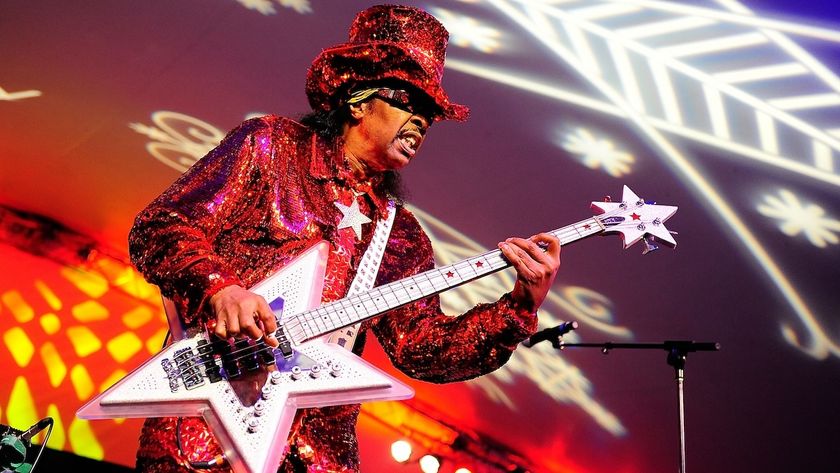
“The bass is the instrument you need to play the longest to become truly funky”: 20 funk bass legends who took low-end groove to new heights
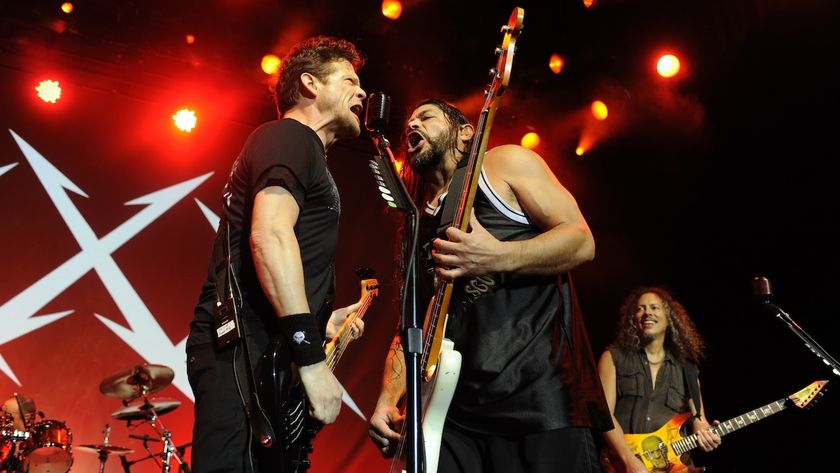
“There’s an art to simplicity, and Jason Newsted brought that art. Cliff Burton was more aggressive, and a busier player”: The bassists of Metallica
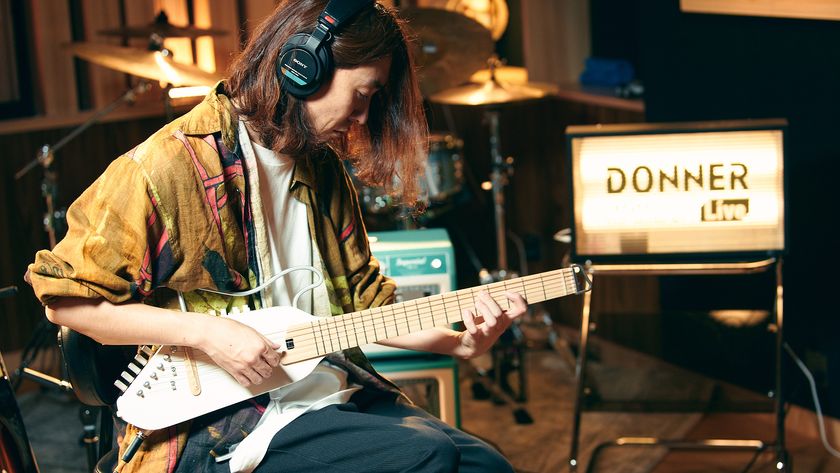
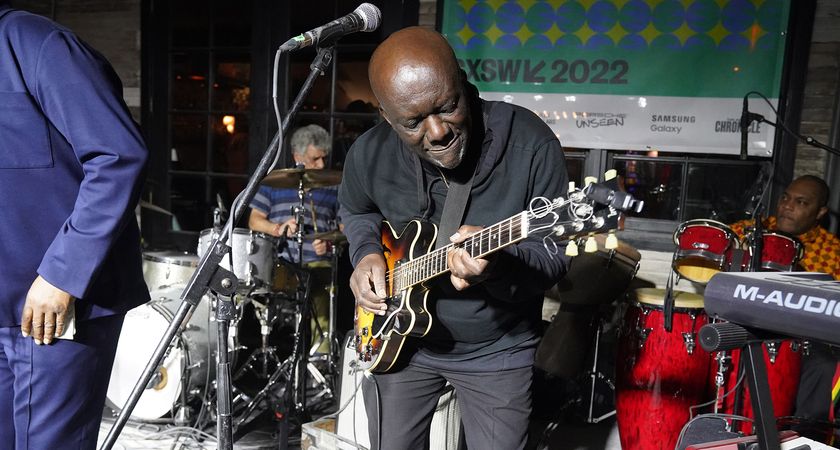
![[L-R] George Harrison, Aashish Khan and John Barham collaborate in the studio](https://cdn.mos.cms.futurecdn.net/VANJajEM56nLiJATg4P5Po-840-80.jpg)
